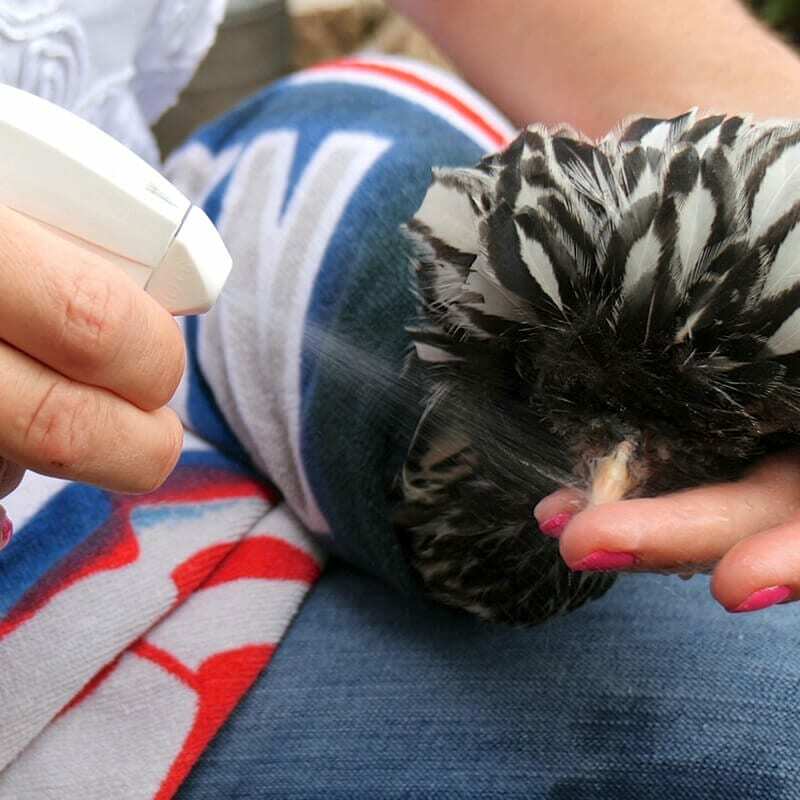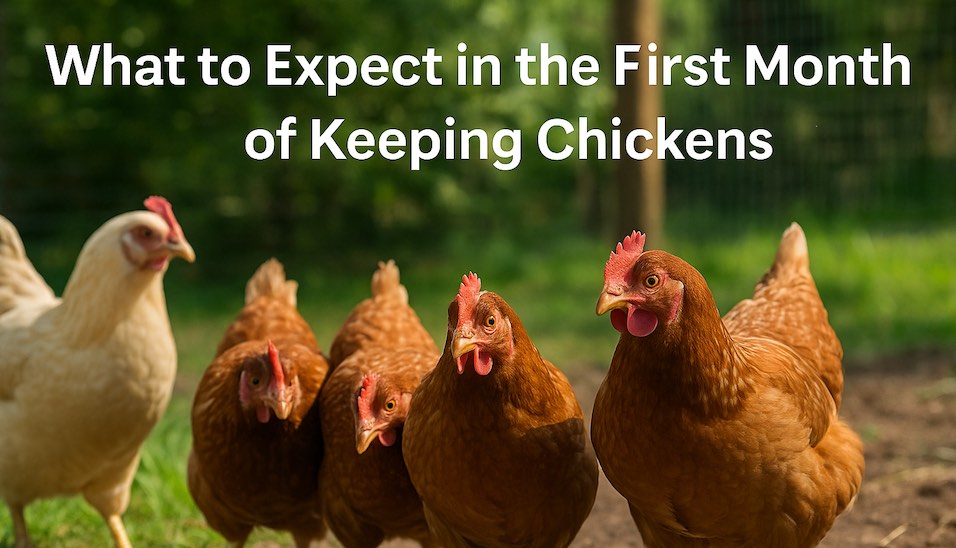How to Use Vetericyn Plus Poultry Support for Treating Fowl Pox in Chickens
How to Use Vetericyn Plus Poultry Support for Treating Fowl Pox in Chickens
Fowl pox is a common viral disease in poultry, characterised by lesions on the skin (dry form) or in the mouth, throat, and upper respiratory tract (wet form).
Fowl pox in chickens can significantly impact their health, and while there is no cure for the virus itself, supportive care can help manage symptoms and prevent secondary infections.
Using Vetericyn Plus Poultry Support, available exclusively through Dine-A-Chook Australia, can be part of an effective method for treating fowl pox naturally and helping your chickens recover.
→ Purchase Vetericyn Plus Poultry Support
Step-by-Step Fowl Pox Treatment
We'll walk you through the steps for treating your chook affected by fowl pox:
1. Identify Fowl Pox Symptoms in Chickens
- Dry Form: Look for wart-like lesions on the comb, wattles, and other unfeathered parts of the body.
- Wet Form: Lesions in the mouth, oesophagus, or trachea, potentially causing respiratory distress.
2. Prepare the Bird for Treatment
- Isolate affected birds to prevent the spread of the virus to other poultry. This also helps reduce stress for your sick chooks.
- Ensure the bird is calm and securely restrained to minimise stress and make the treatment process easier.
3. Clean the Affected Area
- Use clean water to gently wash away dirt, scabs, or debris from the lesions. Avoid scrubbing, as this could irritate the area.
- If necessary, carefully trim feathers around the affected area to improve access for treatment.
4. Application of Vetericyn Plus Poultry Support
- Adjust the spray nozzle for a fine mist or stream, depending on the area you are treating.
- For Dry Form Lesions: Thoroughly saturate the lesions with the spray. Apply 3-4 times daily until the lesions heal completely.
- For Wet Form Lesions: Carefully spray the affected areas inside the mouth or throat. Ensure the bird can still swallow and breathe comfortably during application.

5. Maintain Hygiene
- Regularly clean and disinfect your chooks’ living environment to reduce the spread of the virus and prevent reinfection.
- Provide fresh, clean water and a well-balanced diet to support your bird’s immune system and overall recovery.
6. Monitor Progress of Fowl Pox Treatment
- Keep a close eye on the lesions for signs of healing or secondary infection. Any changes, like swelling or foul odours, could indicate complications that need attention.
- Stick to the treatment plan consistently to give your bird the best chance of recovery.
7. Supplementary Care
- Offer a diet rich in vitamins A and E, which are crucial for skin healing and immunity. Carrots, spinach, and pumpkin are great natural options.
- For added support, include Vitamins for Chickens or Mega Mineral Chicken Supplement in their waterer. These products can provide essential nutrients to speed up healing.
Precautions
- Safety: Vetericyn Plus is completely safe if ingested and can be used around the head, eyes, and sensitive areas without causing stinging or irritation. It’s perfect for use on laying hens.
- Storage: Keep the product stored according to the instructions, away from heat or freezing temperatures, to maintain its effectiveness.
Comprehensive Information on Fowl Pox
Fowl pox is a viral infection affecting chickens, turkeys, and other birds. It spreads through direct contact with infected birds or via vectors like mosquitoes.
The disease has two forms: dry (cutaneous) and wet (diphtheritic).
- Dry Form: Characterised by wart-like nodules on the skin that eventually form scabs. These lesions are typically found on the comb, wattles, and other unfeathered parts.
- Wet Form: Involves the formation of diphtheritic lesions in the upper respiratory tract and oral cavity, which can lead to respiratory distress.
Prevention: Good biosecurity practices, controlling mosquito populations, and vaccination in endemic areas are key to keeping your flock safe.
Take the stress out of treating fowl pox with Vetericyn Plus Poultry Support. Available exclusively from Dine-A-Chook Australia, it’s a reliable and safe choice for helping your chooks heal.
Order yours today and give your flock the care they deserve!
→ Shop Vetericyn Plus Poultry Support
Related Articles




